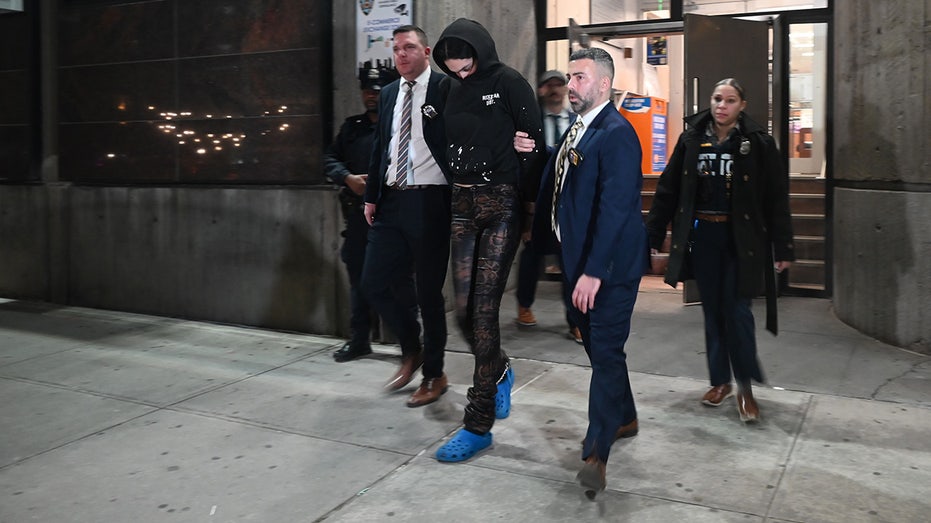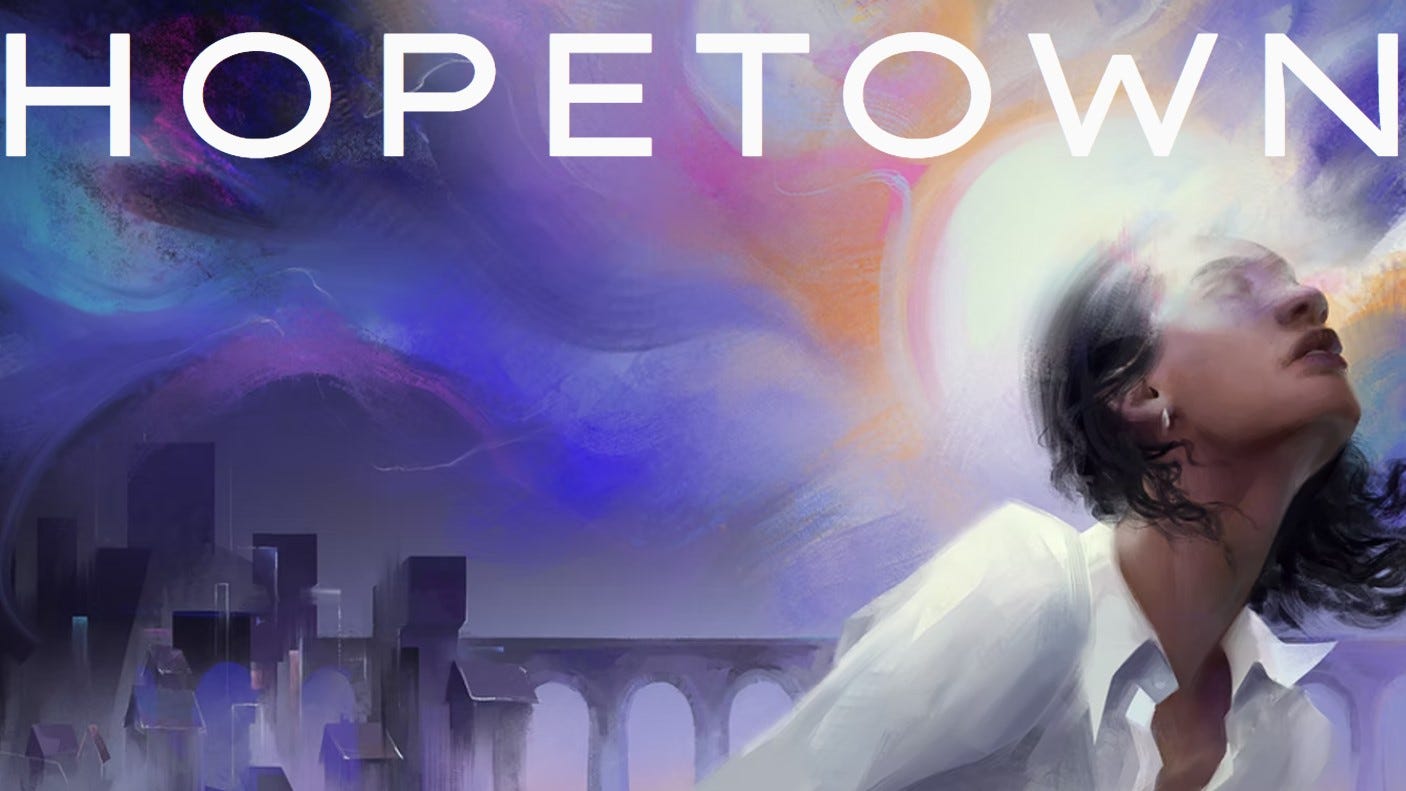An odd year in movies, explained by this year’s Oscar nominations
After a surprisingly delightful, Barbenheimer-themed Oscars in 2024, this year’s nominations are a return to form. As per usual, the nominees are a mix of the past year’s most tasteful blockbusters, like Wicked: Part 1 and Dune: Part 2; a handful of smaller but buzzy films that the average moviegoer is at least partly familiar […]


After a surprisingly delightful, Barbenheimer-themed Oscars in 2024, this year’s nominations are a return to form. As per usual, the nominees are a mix of the past year’s most tasteful blockbusters, like Wicked: Part 1 and Dune: Part 2; a handful of smaller but buzzy films that the average moviegoer is at least partly familiar with, like Conclave and Anora; and the sort of stereotypical Oscar bait that earns the awards show its “out-of-touch” label, like the year’s most nominated film Emilia Pérez.
Compared to last year’s ceremony, which honored both populist and surprise indie hits, this current slate of nominees feels like a bit of a digression. It’s not that the year’s frontrunners don’t have their enthusiasts, although mostly on Letterboxd. Rather, this year’s Oscars are noticeably lacking in movies that mass audiences can strongly agree are masterpieces. Sure, plenty of contenders have compelling premises, but it’s still debatable whether many of these movies, like The Brutalist or Anora, actually succeed in their execution.
Nevertheless, this year’s sometimes curious nominations have plenty to tell us about 2024 in cinema. While the opinions of the mostly white, male Academy don’t necessarily account for the average moviegoer, they provide an interesting recap of the past year and reveal some trends that could persist over the next few years.
The strikes made things weird
Despite receiving five Oscars nominations, including Best Picture, Dune: Part 2 was surprisingly easy to forget throughout awards season. It was certainly much less of a conversation-starter than other buzzy movies that came out this year. Star Timothée Chalamet’s turn as Bob Dylan in A Complete Unknown, plus his overbearing press tour for that role, totally overshadowed his part in Denis Villeneuve’s film. The timing of its release also made it a bit of a nonfactor by last summer.
Due to the 2023 writers’ and actors’ strikes, the sequel was pushed from its October 2023 release date to March 1, 2024. One wonders whether the movie would’ve been a bigger talking point this awards season if not for its Q1 release. Perhaps then Austin Butler actually would’ve had a shot in the Best Supporting Actor category.

On the other hand, it seems like Challengers, which received zero nominations, also may have made a bigger splash if it hadn’t been repeatedly rescheduled. Like Dune: Part 2, the strikes also prevented the movie from its original release in fall 2023. It was also set to premiere at the 2023 Venice Film Festival before it was released in theaters, which maybe would’ve given the film more prestige. Instead, most of Luca Guadagnino’s Oscar buzz went to the middlingly reviewed Queer, which the Academy also neglected. One wonders if either of these films, as well as Guadagnino, who has yet to receive a Best Director nomination, would’ve had a stronger foothold in the race had they been released in separate years.
“Middlebrow” movies are back
After a decade of redundant superhero franchises and other CGI-laden IPs, 2024 felt like a much-needed reset for movie culture. Specifically, it was a return to the sort of box office lineup you would regularly see in the ’90s and 2000s. Likewise, the year provided a number of mid-budget, “middlebrow” movies, like eight-time nominee Conclave, triple nominee The Substance and two-time nominee A Real Pain, with compelling but accessible premises for the average person looking to have a memorable time at the multiplex. These now-Oscar-nominated films, plus similarly fun fare that were firmly in the awards conversation but didn’t end up receiving nods, like Babygirl and Challengers, all managed to exceed expectations at the box office. They also became major talking points and references in pop culture, offering the polarizing characters and unpredictable endings that are typically lacking in Marvel fare.
The treatment of these movies by awards bodies, like the Oscars, seems notable, too. In a piece for Vulture, writer Louis Petizman referred to the celebration of these films as “the year in elevated trash.” For all intents and purposes, Conclave is an adaptation of an airport novel; The Substance is a satirical body horror film where Demi Moore turns into a blob. Conclave, in particular, seemingly managed to meme its way into the awards conversation, gaining the affection of younger Letterboxd users in addition to its anticipated senior audience.
It may be a bit debatable whether some of these movies are artistic feats worthy of recognition by the Academy. Still, their dominance in pop culture might just be a net good for the industry and the range of interesting options audiences might have at the movie theater in the future.
Musicals are still hit-or-miss
The jury is still out on whether audiences are craving movie musicals, although 2024 seemed like a notable step forward. Four splashy movies within the genre — Wicked: Part 1, Joker: Folie à Deux, Emilia Pérez, Better Man — were released this year with big marketing pushes. (There was also the barely promoted A24 musical called The End starring Tilda Swinton.) Only two of these films earned major Oscar nominations, which isn’t saying nothing. Emilia Pérez earned the most nods with 13, while Wicked: Part 1 earned 10. Better Man, presumably thanks to a strong word-of-mouth campaign more than its performance at the box-office, also earned a surprising sole Visual Effects nomination. Out of all four films, only Wicked managed to become a blockbuster, earning over $700 million internationally.
At the very least, Wicked: Part 1 proved that audiences are willing to sit through a bunch of showtunes with the help of a $150 million marketing budget and Ariana Grande. However, it turns out that huge pop stars alone aren’t enough to get even their own fans to sit through musical movies. The Golden Globe-winning Emilia Pérez, which co-stars Selena Gomez, seemed to make much more of an impression with festivalgoers and awards bodies than the average person with a Netflix account. Despite all of the critical buzz surrounding the film at the last year’s Cannes Film Festival, the musical, about a cartel leader’s gender transition, quietly landed on the streaming platform and selected theaters this past December. Meanwhile, questionable parts of the movie — like a song where a doctor explains gender-affirming surgeries to Zoe Saldaña by belting out “man to woman, penis to vagina” or a scene of Selena Gomez poorly speaking Spanish — that made their way to social media didn’t seem to inspire more people to watch it.

Then there was highly anticipated but poorly received Joker: Folie à Deux, starring Lady Gaga. The sequel hardly reaped any rewards at all, bombing at the box office and getting panned by critics. The fact that it was shut out from awards was even a joke at this month’s Golden Globes. Better Man, the Robbie Williams musical biopic, was another commercial disaster, presumably due to Americans’ general lack of knowledge of the former Take That member — and perhaps the outwardly confusing decision to portray Williams as a CGI chimpanzee. However, it managed to earn good reviews and a strong cult following among Letterboxd devotees, in addition to its surprise Oscar nod.
Overall, it seemed that Wicked, one of the most popular musicals of all time based on one of the most popular IPs of all time, would inevitably earn tons of money. It also helped that it was being promoted as a huge cultural event on the level of 2023’s Barbie, even borrowing its exact marketing agenda. Although, that didn’t work for every movie…
Long, epic movies are still in
Along with Wicked and Dune: Part 2, the surprising box office success of 10-time nominated epic The Brutalist proved that moviegoers are willing and maybe even excited to sit down for a long, spectacular movie. While Wicked has a more bearable runtime of two hours and 40 minutes, the excitement around seeing both of these lengthy films in theaters is most obviously a side effect of Barbenhiemer, which seemed to promote the concept of movies as “events” on par with concerts. The release of Killers of the Flower Moon in 2023 also presumably primed audiences for movie outings that take up your entire afternoon.
Particularly, Oppenheimer convinced audience members that, if a movie is important or visually impressive enough, it should be seen in a large-format such as IMAX or 70mm. Likewise, The Brutalist is also being presented in 70mm with much of its marketing focusing on the fact that it is a visual spectacle.
There’s only one “Barbenheimer”
2024 proved that Barbenheimer is not as easily replicable as studios had probably hoped. Despite all the efforts by actors and film journalists to make “Glicked” — the same-day release of Wicked and Gladiator II back in November — a thing, it was hardly comparable to the more organic excitement surrounding Barbie and Oppenheimer the year prior.
Arguably, Wicked, a musical, and Gladiator II, a sequel to a 20-year-old movie, were less appealing to the public than a movie about the world’s most famous toy and a Christopher Nolan flick. Thus, they each made less money — although, not insignificant numbers. Gladiator II, in particular, didn’t seem to live up to the expectations set by its predecessor, earning mixed reviews and criticism for its leading man Paul Mescal.Even the most outstanding aspect of the movie, Denzel Washington’s performance, was snubbed by the Academy, although it did earn a nomination for Best Costume Design.

In general, these nominations are a reminder that the biggest blockbusters don’t always overlap with taste, nor are they immediately destined for Oscars glory — or even consideration — based on how well they perform. For example, despite Ryan Reynolds’s efforts to campaign the year’s second highest-grossing movie, Deadpool & Wolverine, the third Marvel sequel where Reynolds and Hugh Jackman mainly exchange gay jokes never really had a chance amongst more prestigious offerings. And the year’s highest-grossing film, Inside Out 2, didn’t transcend its expected Best Animated Feature category to receive other major nominations.
While movies like Barbie, Oppenheimer, and even 2023’s Best Picture winner Everything Everywhere All at Once seemed to impress Academy voters with their box office numbers, it’s clearly — and maybe thankfully — not all it takes.
What's Your Reaction?




















































